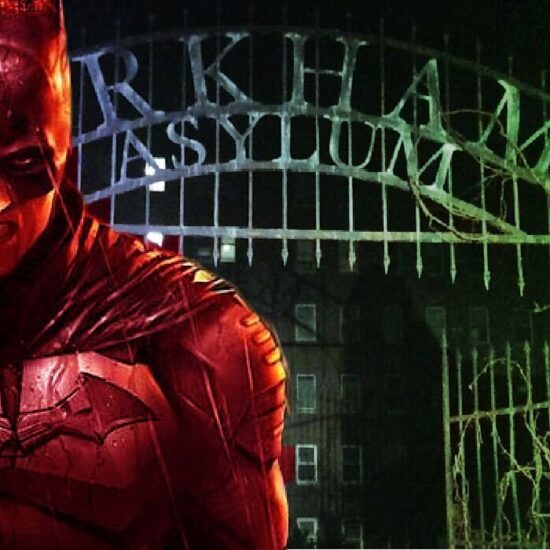The hit television show Bob’s Burgers is chock-full of eccentric characters, and Calvin Fischoeder (voiced by the delightful Kevin Kline) is no exception. Dressed in a three-piece white suit, matching white eye patch, and purple tie, this wealthy landlord owns the building that houses Bob’s restaurant as well as the amusement park and countless other properties in the town.
His purple-suited brother Felix (the hilarious Zach Galifianakis) is no less eccentric and much more dramatic. He first appears in “Ambergris,” episode 418 of the series, when Calvin gives him more responsibility as a landlord since his inheritance ran out. Bob requests that Felix call a plumber to fix the toilet in the restaurant, but Felix shouts over him that he’ll do it before Bob even finishes the question.
Hehuffs out of the restaurant, refusing to “get roped into another hour long discussion.” When Felix is called out for being dramatic later on in the episode, he vehemently disagrees, tearfully exclaiming, “I’m not being dramatic! I just feel like I’m gonna throw up my heart and my head will fly away like a bird!”
In an age when landlords and property owners are only getting more predatory, the Fischoeders act as a humorous, lighthearted yet unapologetic caricature of that greed. The writers of Bob’s Burgers have achieved a seemingly impossible feat: characters that are realistic, yet somehow entertaining representation of landlords. From making deals to exposing the realities of corporate greed, here’s why the Fischoeders are the only acceptable landlords:
They’re Fictional
Enough said. Just kidding. Landlords are making passive income from tenants in an age when the federal minimum wage can barely even begin to cover necessities, let alone astronomical rent prices. Add to that the fact that landlords are not known for actually meeting their tenants’ basic needs in a timely manner, if at all, and you’ve got a recipe for a deeply, inherently flawed system that only works to help the rich get richer. In that vein, fictional landlords are at least somewhat acceptable, because they’re not directly contributing to the ever-widening economic gap.
They’re Willing to Make Deals That Actually Benefit Their Tenants
For the richest man in a small tourist town, Mr. Fischoeder enlists the help of Bob, his family, and the other tenants quite a bit — pretending to be his family to entice one of his romantic conquests with a penchant for breaking up happy families, stepping in to throw a gingerbread competition. They’re often disinclined to help the landlord who takes a large portion of their income, but he almost always quickly and easily offers them a deal on rent or forgoes it for months entirely.
Other times, he bribes them to forget about things his brother Felix has done, (like literal attempted murder) or pays them off as a reward for clearing his name when he was accused of murder in The Bob’s Burgers Movie. While he would never make a deal like this unless it directly served his own oddball purposes, allowing tenants to skip a month of rent entirely is hugely beneficial to any tenant — especially for a family running a small, independent business.
They Expose Landlords as Greedy Capitalists
When Mr. Fischoeder announces a rent hike that none of his tenants can afford, Bob encourages his fellow tenants to refuse to pay, pointing out that it’s the only leverage they have against “a guy as big as Fischoeder.” The tenants go as a group to inform him of this decision, only to be greeted with mojitos from a jovial Mr. Fischoeder. He proposes an alternative: a water balloon fight among the tenants where the losers’ rent is raised, but the winner’s rent is halved.
This, of course, results in dividing the united tenants into a fierce, Hunger Games-esque, everyone for themselves competition. Felix, who has been sent to live in the tree house, helps Gene and Louise launch balloons at the competition from the high ground. The tenants turn on Bob, especially when Fischoeder changes the rules: now tenants can get $50 off their rent and add $50 to Bob’s every time they hit him. Things turn dire for him when the group finds him in his hiding place, advancing on him with balloons in hand. Just as they’re all about to hit him and raise his rent to astronomical levels, Linda makes an impassioned speech. She pleads with her fellow tenants to empathize with the family whose business and livelihood is at stake, especially as Bob tried to unite them all to help them.
As Fischoeder approaches, the tenants toss their balloons into the ground and renew their “rent hike, rent strike” chant. Fischoeder is taken aback and offended by this development: “Oh, I get it. Just because I’m a landlord, and I wear a white suit and an eye patch, and I raise your rent and ride around and throw firecrackers at you, I’m the bad guy.” When he and Bob have a one on one, he confesses that he’s raising their rent just so he can get a pool, but ultimately decides to postpone it, and the rent hike, for a year or two. Even as a resolution to the episode where he is indisputably the antagonist, the landlord doesn’t fully concede when he sees how his greed would affect the lower classes families — he simply chooses to delay it.
In an age where any landlord’s morals should be questioned, the representation of Calvin Fischoeder and his brother Felix is an entertaining yet eerily accurate one: eccentric, opulent people in suits with ulterior motives. In a somewhat refreshing, somewhat depressing twist, the Fischoeders are on our protagonist Bob’s side just as often as not. Because this representation exposes the truth behind landlords’ motives, paired with the fact that they’ll make deals and, ultimately, that they’re fictional, the Fischoeders are arguably the only acceptable landlords — if acceptable landlords exist at all.















